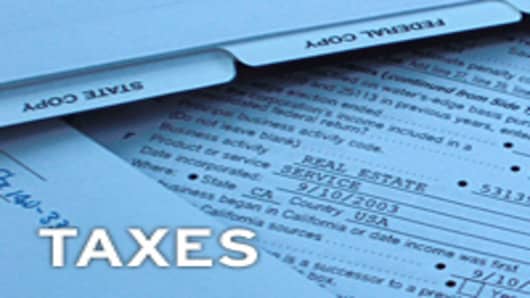Long-term capital gains are currently taxed at 15 percent, though that is likely to rise to 20 percent, at least for high-income taxpayers, by 2011. It is also important to note that taxpayers in the lowest income tax brackets, of 10 and 15 percent, pay no capital gains taxes in 2009 and 2010, so selling investments at a loss would not provide additional tax savings, Mr. Scharin added.
BUY THAT CAR If you are planning on buying a new car, truck or motorcycle, you may qualify for a federal tax break if you purchase it before Dec. 31. The break allows eligible taxpayers to deduct state and local sales and excise taxes paid on up to $49,500 of the purchase price. But the amount of the tax break, which can be used whether you itemize deductions on your tax return or not, begins to phase out for individual taxpayers whose modified adjusted gross income is $125,000 to $135,000 and $250,000 to $260,000 for joint filers.
Some hybrid vehicle purchases still qualify for a credit of up to $3,400, said John W. Roth, a senior tax analyst at CCH.
HOMEBUYER CREDIT The first-time homebuyer’s tax credit of up to $8,000 has been extended, so eligible taxpayers can now claim the credit as long as they purchase a home or are in contract by April 30 (they have until June 30 to close). For those looking to move up or downsize, existing homeowners may qualify for a new tax credit of up to $6,500 — but they must purchase a new home, or sign a sales contract, between Nov. 7 and April 30.
The credit can be claimed for the year before the purchase. So if you buy a home in 2010, you can still claim the credit on your 2009 return, Mr. Scharin said. But if you do not close on the purchase by tax day, you may need to get an extension or file an amended return later.
HOME IMPROVEMENTS If you made “green” improvements to your primary home this year, you may be eligible for a residential energy property credit, which is capped at 30 percent of the price of certain qualifying improvements, like energy-efficient windows and doors to heating systems, according to CCH. The credit is available for 2009 and 2010, up to a combined maximum of $1,500.
529S About 34 states and the District of Columbia offer either deductions or credits on contributions to 529 college savings plans — the exact amounts are set by each government. If you live in one of those places, you need to contribute by the end of the year (a small number of plans have an April 15 deadline). “Since contributions are gifts, many people limit their annual contributions to how much they can squeeze within the gift tax annual exclusion, which is $13,000 this year,” said Joseph Hurley, founder of SavingforCollege.com.
OTHER EDUCATION BREAKS Taxpayers with children in college, or students paying their own way, should make sure they have maximized the American Opportunity Tax Credit, available in 2009 and 2010, which replaces the less generous Hope Scholarship Credit. The maximum annual credit is $2,500 and covers tuition, fees and course materials. The credit phases out for single filers with modified adjusted gross incomes of $80,000 to $90,000 and for married couples filing jointly at $160,000 to $180,000.
CHARITABLE GIVING All donations, monetary or otherwise, must be made by the end of the year (and only individuals who itemize their deductions are eligible for a deduction). Donations of household goods or clothes must be in “good used condition,” and require a receipt from an organization detailing the items, unless you left the property in a drop box (if that’s the case, keep your own records). All donations worth more than $250 require a written receipt from the organization. Donations put on your credit card this year but paid next year are also deductible, Mr. Scharin said.
GIFTS Individuals can give any number of people up to $13,000 each in 2009 without gift tax consequences. So if you want to maximize the amount you can give to, say, a relative who lost a job, you can send $13,000 now and $13,000 more next month.
MEDICAL EXPENSES These can only be deducted — as an itemized deduction — if they exceed 7.5 percent of your adjusted gross income (10 percent if you’re subject to the A.M.T.), according to CCH. So if you’re near the threshold, consider buying eyeglasses or getting dental work, and paying for it before the year’s up.
Lastly, do not forget that any money in flexible spending accounts must be spent before the end of the year (though some plans might have grace periods).


